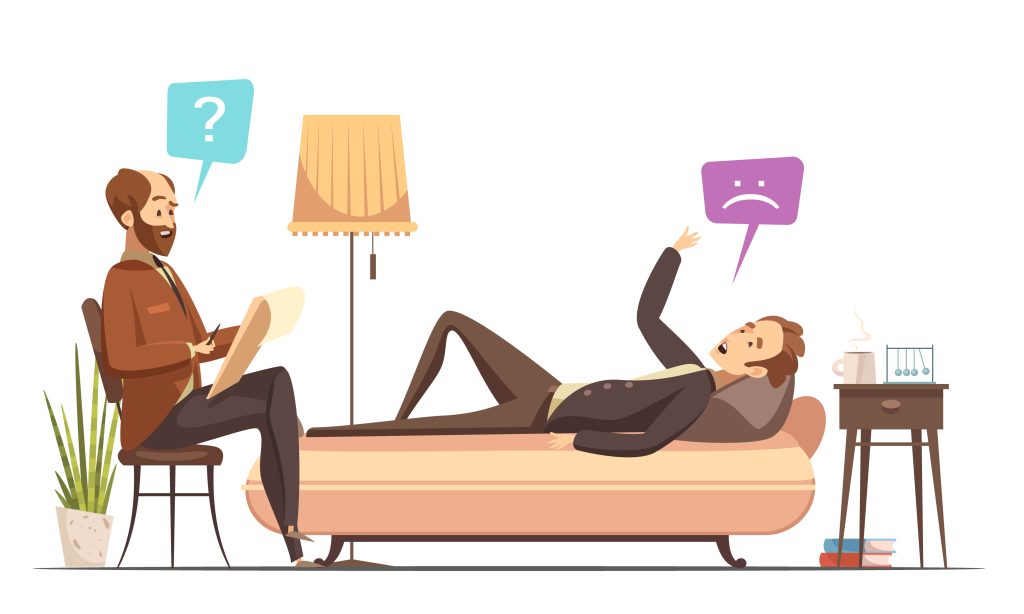What is EMDR Therapy and How Does it Help People?
This article has been researched and written by Nayla Daou. AI has not been used in producing this article.
Since the days of Freud, we’ve come to expect that managing our trauma is a lifelong journey. However, this is not the case. Eye Movement Desensitization and Reprocessing therapy (EMDR therapy) was developed in 1990 by psychologist Francine Shapiro. Since then, EMDR therapy has been a safe and effective treatment option for individuals grappling with unresolved anxiety, PTSD, and trauma. In fact, according to the EMDR Research Foundation, EMDR has been clinically validated by more than 30 randomized, controlled studies (which are considered the gold standard for clinical studies).
Today we will discuss what EMDR therapy is and how it can help people.
What is EMDR?
EMDR therapy is a focused, phased approach to treating trauma and other symptoms by reconnecting the traumatized person safely and accurately to the images, emotions, thoughts, and body sensations connected to the traumatic event. The gradual process allows the brain to move toward a positive resolution naturally.
EMDR therapy is based on the theory that symptoms appear when trauma and other negative experiences overpower the brain’s natural ability to heal. EMDR facilitates the healing process using bilateral stimulation while the client is recalling their trauma in a secure, controlled, and non-judgemental environment.
EMDR can prove effective for the following:
- PTSD
- trauma
- childhood attachment-related issues
- fears and phobias
- unprocessed grief
- panic attacks
- debilitating memories
- anxiety and stress reduction
- and more

How does EMDR work?
EMDR is an eight-phase therapeutic treatment conducted throughout an undetermined amount of sessions (based on the client’s progress) over 60-90 minute time periods. Individuals who have experienced single event traumas such as car accidents may need fewer sessions than those who have experienced multiple traumas over an extended period. Each session focuses extensively on the individual’s strengths, resources, and coping skills.
Throughout EMDR treatment, clients will work with the therapist to recall their traumatic history while moving their eyes back and forth, following the hands of their therapist. This process allows the individual to process and incorporate any traumatic memories, merging them with their standard memories. Because the individual is physically distracted with eye movements, recalling the memory is typically less painful. Over time, the repeated exposure to these upsetting memories reduces their impact on the client. The participant still remembers the event when a memory has been successfully alleviated, but it’s far less upsetting.
Is EMDR therapy right for me or my loved one?
The decision to seek EMDR therapy is a cooperative strategy between therapists and clients. Once the therapist and client both agree that EMDR is suitable for processing your traumatic events, you’ll determine the number of sessions you’ll need to start.
EMDR treatment can only begin when a client:
- agrees to and is willing to participate in treatment
- holds a basic level of emotional and physical stability
- does not participate in self-harming behavior (such as cutting)
- has a support system outside of therapy
- can tolerate relatively high levels of emotion
- can use guided visualization for safety, protection, and nurturing

ClearMinds EMDR Therapy
At Clear Minds, our EMDR therapists combined their knowledge and expertise with a passion for helping individuals process their trauma. Using compassionate care and the latest therapeutic techniques, we empower individuals to move forward on their path toward growth and enhanced mental health. Our therapists are highly skilled and personable clinicians who genuinely care about their client’s wellbeing. You do not have to face your challenging times alone; we are here to help.
If you or a loved one could benefit from EMDR therapy, contact a member of our team at +971-4-557-6220 to schedule an appointment. You can also email us at info@clearmindscenter.com or drop us a line through our online contact form. We look forward to hearing from you.
Validation: How To Do That ?
This article will discuss what validation means, what it does not mean, and how to effectively use …
The Hidden Language of Your Nervous System
Before you say, “I’m fine,” your nervous system has already responded. That response doesn’t …
From the Ahi Brotherhood to Attachment Based Mentoring: A Legacy of Belonging
In today’s fast-paced world, where modern life pressures parents to maximize productivity …
Understanding Autism: A User Friendly Perspective
Autism is often described as a “spectrum,” which can be somewhat misleading as it can seem …
Panic, Stress, and Anxiety Facing the Giant Praying Mantis
We often throw around words like panic, stress, and anxiety as if they were the same. They’re not …
Why That Chewing Noise Drives You Crazy
It’s called misophonia, which literally means “hatred of sound”! It happens when someone experiences …
Are Freudian Slips Accidents or Unconscious Desires?
Suddenly, there is silence, eyebrows are raised, and you’re left mumbling, while attempting to explain …
Effectiveness of Authoritative Parenting in Fostering Autonomy
Initially, a newborn relies completely on their parent, but over time, they transition from being an object …
Rethinking Neurodiversity and Autism
I want to explore autism beyond outdated concepts of deficits and limitations. In the newsletter …
Did You Know – Crows Can Be Quite Machiavelic
Crows have become quite the residents in Dubai’s landscape. Although first spotted around …











